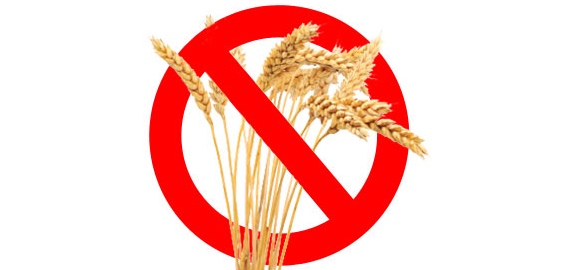Endometriosis Awareness Month 2016, PCOS, pregnancy risks, pelvic pain in women, and weight loss
March is Endometriosis Awareness Month 2016, which touches upon topics such as polycystic ovary syndrome (PCOS), pregnancy complications, pelvic pain in women, and weight loss. Endometriosis affects an estimated 176 million women worldwide and not only negatively impacts a woman’s life, but can cause some very painful symptoms, too.
Here is Bel Marra Health’s news roundup containing stories about endometriosis and how it can impact other areas of women’s health, including fertility and mental health.
Endometriosis, a chronic disorder in women, causes, symptoms, and natural treatment
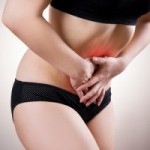 Endometriosis is a painful condition that affects an estimated one in 10 women during their reproductive years. Statistical studies show this works out to about 176 million women around the world between the ages of 15 and 49.
Endometriosis is a painful condition that affects an estimated one in 10 women during their reproductive years. Statistical studies show this works out to about 176 million women around the world between the ages of 15 and 49.
Endometriosis, which is pronounced en-doe-me-tree-O-sis, essentially means that a tissue (the endometrium), which lines the inside of a woman’s uterus, grows outside the uterus. Endometriosis can involve the ovaries, bowel, or the tissue lining the pelvis. It can spread beyond the pelvic area, but it is rare.
When a woman has endometriosis, tissue acts like it is supposed to, except that it is thick, breaks down, and bleeds with each menstrual cycle. Since the tissue is displaced, it has no way to exit the body. This means that surrounding tissue can become irritated, eventually leading to scar formation and adhesions, something that can bind organs together. When endometriosis involves the ovaries, cysts can form.
The biggest problem with endometriosis is infertility. However, it is estimated that up to 70 percent of mild to moderate cases will eventually allow for pregnancy without treatment. Continue reading…
Endometriosis increases risk of pregnancy complications, affects fertility in women
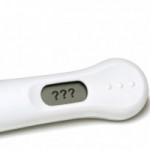 Endometriosis increases the risk of pregnancy complications and affects fertility in women. Study author Dr. Lucky Saraswat said, “These results indicate that endometriosis predisposes women to an increased risk of early pregnancy loss and later pregnancy complications.”
Endometriosis increases the risk of pregnancy complications and affects fertility in women. Study author Dr. Lucky Saraswat said, “These results indicate that endometriosis predisposes women to an increased risk of early pregnancy loss and later pregnancy complications.”
The nationwide cohort study examined discharge data from all across Scotland. Records of women with and without a confirmed diagnosis of endometriosis were crosslinked to their maternity records to evaluate pregnancy outcomes. The analysis included 14,655 women whose medical records were followed up for up to 30 years.
Endometriosis is a fairly common condition in which the cells of the uterus lining are found in other parts of the pelvis. Information regarding endometriosis is usually from infertile women and not based on the general population. Continue reading…
Endometriosis pelvic pain in women associated with poor mental health
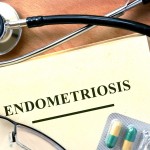
A recent study published in the Journal of Psychosomatic Obstetrics and Gynecology reports that women who experience pelvic pain associated with endometriosis may require some kind of psychological intervention to deal with mental health issues and thus improve their quality of life.
Just over 100 patients with surgically diagnosed endometriosis and 61 healthy people in a control group were assessed for anxiety, depression, and overall quality of life. The results of the assessment indicated that those suffering from pelvic pain had poorer mental health than those who did not. Women with endometriosis who did not experience pain were less likely to have anxiety and depression than those with a lot of pelvic pain.
Doctors have known for some time that endometriosis could impact a woman’s quality of life. They have always felt the chronic inflammation associated with this kind of condition was the main reason. Now, this new information could help them see the need to assess pain experiences and determine when patients might need psychological assistance.
An estimated two to 10 percent of American women of childbearing age suffer from endometriosis. Continue reading…
Women regain fertility loss from polycystic ovarian syndrome (PCOS) by losing weight
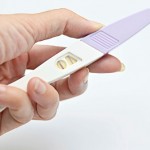 Being overweight and having PCOS contributes to infertility much more than having one or the other. A new study published in Endocrine Society’s Journal of Clinical Endocrinology and Metabolism found that weight loss and exercise can help infertility associated with PCOS.
Being overweight and having PCOS contributes to infertility much more than having one or the other. A new study published in Endocrine Society’s Journal of Clinical Endocrinology and Metabolism found that weight loss and exercise can help infertility associated with PCOS.
Previous research has shown that just a five percent loss in body weight is enough to dramatically improve the chances of pregnancy. Findings were evident in both men and women for improving infertility.
Doctors suggest that in order to improve your odds of getting pregnant, losing weight should be the top priority on your to-do list.
Study author, Richard S. Legro, said, “The findings confirm what we have long suspected – that exercise and a healthy diet can improve fertility in women who have PCOS. Making preconception lifestyle changes is beneficial, either alone or in combination with other pretreatment options.” Continue reading…
-
A Discussion On Weight Loss Diet Supplements
Obesity statistics show that more than 30% of people in America are ob
-
Weight Loss Basics -- Basal Metabolic Rate (BMR)
(Eleventh in a Series) Metabolism — Converting Food Into Ener
-
Best Weight Loss Exercises to Lose Weight Fast
Even the best weight loss exercises to lose weight faster take time, e
-
Weight Loss After Menopause - Avoid These Foods
The type of food you eat can be critical to achieving weight loss afte
-
Avoid the BBQ Bombshells
BBQ Bombshells Warm weather brings flowers, sunshine and BBQs that
-
The Fastest Weight Loss System
The Fastest Weight Loss System: STOP EATING!! Yeah thats the quickes
- DON'T MISS
- Lose Weight And Burn Fat With One Simple Eating Principle
- Weight Loss Tips for Obese People
- Virtually all around Green Tea Extract
- Strength Training Tips for Senior’s
- Good Food For Good Mood
- Diet And Exercise Program For Permanent Weight Loss Part 3
- Weight Loss: How to Make Healthy Choices When Traveling
- Drop 10 Lbs. The Healthy And Safe Way - The Good Approach Towards A Slimmer Physique
- Sugars Sweet Little Game Of Deceit
- The Major Problems With Weight Gain Pills



